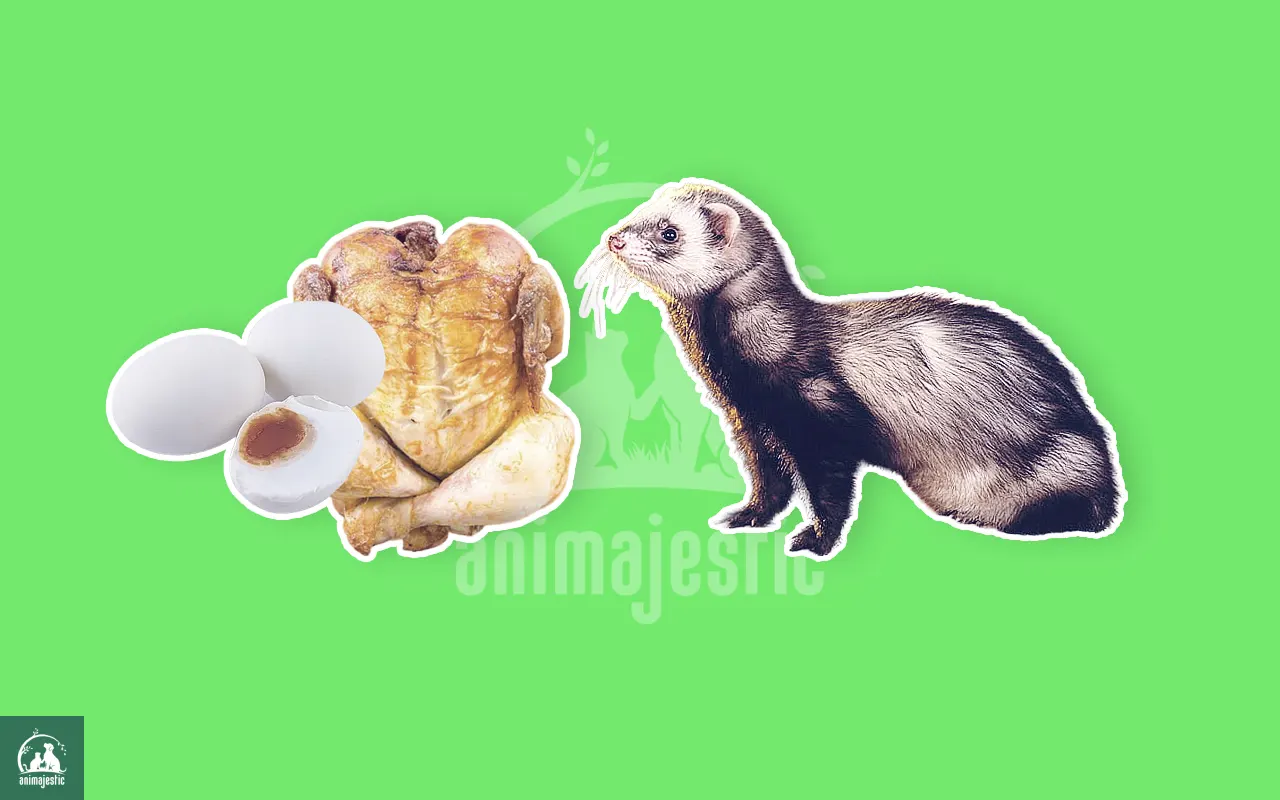Ferrets are intelligent creatures that make excellent pets for those who can meet their specific dietary and environmental needs. When it comes to their diet, it should primarily consist of animal-based proteins. On a good day in the jungle, ferrets would typically hunt and eat small animals such as birds, rodents, and insects.
When it comes to domesticated ferrets and I mean adopted ones, it’s essential to provide them with a well-balanced diet that meets their nutritional needs. This is why we are here today and at the same time let you know what to avoid.
The Importance of a Proper Ferret Diet
Ferrets have unique dietary requirements that must be met to ensure their health and well-being. Their short digestive tracts and fast metabolism mean that they need a diet high in protein and fat to provide them with the necessary energy and nutrients.
A well-balanced diet will help maintain a ferret’s healthy coat, strong immune system, and overall vitality. Inadequate nutrition can lead to various health issues, such as gastrointestinal problems, weakened immune systems, and a shorter lifespan.
Commercial Ferret Food Options
When it comes to commercial ferret food, there are several options available. The key is to choose high-quality products that meet your ferret’s nutritional needs.
Dry Kibble
High-quality ferret kibble is an excellent choice for meeting your ferret’s nutritional needs. Look for kibble that has:
- A high protein content (at least 35-40%)
- A fat content of around 20%
- The first few ingredients should be animal-based proteins, such as chicken, turkey, or lamb
- Low carbohydrate content, as ferrets cannot efficiently process carbohydrates
Avoid kibble with high amounts of grains, vegetables, or fruits, as these can be difficult for ferrets to digest and may lead to health issues.
Wet Food
Some ferrets prefer the texture of wet food, which can be found in cans or pouches. Again, look for high-quality options with:
- A high percentage of animal-based proteins
- Minimal fillers, such as grains, fruits, or vegetables
Wet food can be more expensive than dry kibble, and it has a shorter shelf life once opened. However, it can be a suitable option for ferrets with dental issues or those that simply prefer the texture.
Raw Diet for Ferrets
A raw diet can be a healthy option for ferrets if done correctly. This type of diet typically consists of whole prey items, raw meaty bones, organs, and muscle meat. It’s essential to provide a variety of proteins and to balance the ratio of meat, bones, and organs to ensure your ferret receives all the necessary nutrients.
Whole Prey
Feeding whole prey items, such as frozen-thawed mice, rats, or chicks, can provide your ferret with a balanced meal that closely mimics their natural diet in the wild. These can be purchased from pet stores or online suppliers. Whole prey provides a complete nutritional profile, including bones, organs, and muscle meat, ensuring that your ferret receives all the essential nutrients.
Raw Meaty Bones
Ferrets can also eat raw meaty bones, such as chicken wings, necks, or rabbit parts. These should be fed in moderation and always supervised to prevent choking hazards. Raw bones can help keep your ferret’s teeth clean and provide essential minerals, such as calcium and phosphorus.
Organs
Organ meats, such as liver, kidney, and heart, are an essential part of a ferret’s raw diet. These should make up about 10% of their overall food intake. Organs are rich in vitamins and minerals, providing a vital nutrient boost to your ferret’s diet.
Muscle Meat
Raw muscle meat, such as chicken, turkey, beef, or lamb, can also be fed to ferrets. Make sure to remove any excess fat and avoid processed meats, such as deli meats or sausages. Muscle meat provides essential amino acids and proteins that are crucial for your ferret’s health.
Treats for Ferrets
Ferrets can occasionally enjoy certain treats, but these should be given in moderation and should not make up a significant portion of their diet.
Eggs
Ferrets can eat cooked or raw eggs, but they should be fed sparingly as a treat. Eggs can be a good source of protein and vitamins, but they should not replace a balanced diet.
Meat-Based Treats
Some ferrets enjoy freeze-dried or dehydrated meat treats, such as chicken or liver. Ensure these treats do not contain any added salt, sugar, or artificial preservatives.
Foods to Avoid
It’s crucial to remember that ferrets should not be fed fruits, vegetables, grains, or dairy, as their digestive systems are not designed to process these types of foods. Additionally, avoid feeding your ferret human foods, such as chocolate, caffeine, alcohol, or anything high in sugar or salt, as these can be toxic to them.
Conclusion
Providing your ferret with a well-balanced diet consisting mainly of animal-based proteins is essential for their health and well-being. Always consult with your veterinarian for specific dietary recommendations and guidance based on your ferret’s individual needs. By understanding and meeting your ferret’s dietary requirements, you can ensure a happy life for them.
